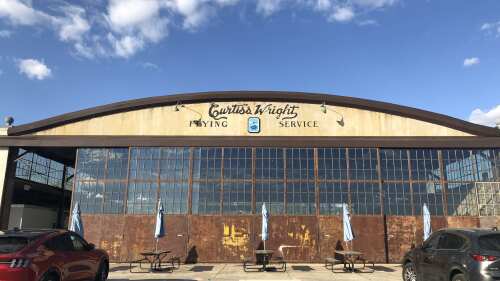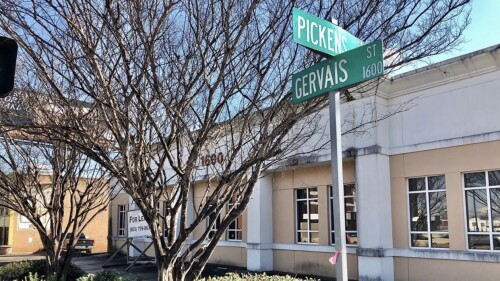The bird is the word
We’ll vulture out to say you’ve heard the buzz on buzzards congregating around Columbia, and we’re here to get to the bottom of this bizarre bird phenomenon.
If you’ve seen the congregation of birds in Columbia, you’ve probably seen a mix of black vultures + turkey vultures. Turkey vultures — with bright red heads — using their keen sense of smell, will likely arrive first at a scene, but black vultures — slightly smaller with a charcoal-colored head — won’t be far behind and both tend to roost beginning in late fall to early spring.
Ruffling feathers
Making their appearance in Cola, these scavengers have ruffled some feathers in the Midlands — and this won’t be the first time.
For the past few years, the birds have taken over parts of Forest Acres. More than just being unwelcome neighbors, they also pose a threat to household pets, damaging property, and can gather in the hundreds in close proximity to humans.
No harm, no fowl
To get rid of the pesky predators is stickier than you might think.
Because these birds are federally protected by the Migratory Bird Treaty Act, you have to acquire a permit to trap, kill, relocate, or touch them. You can however, encourage relocation of the birds through forms of harassment.
Ever heard of a “Bird Banger?” It’s a small cannon that fires a cartridge into the air + causes a loud bang in hopes to scare the birds away. The City of Forest Acres has permitted the use of a Bird Banger to residents on a case-by-case basis, but the effects tend to be short lived. The birds typically migrate to different parts of the city and still come back each year.
Your best bet is to call your local wildlife center, but there are some obscure “at home remedies” that you can try:
- Use pyrotechnics — i.e. bird bangers, bird screamers, or shell crackers — near the roost in the evenings.
- Shoot a red laser into the roost a quarter mile away in the evenings until the bids disperse.
- Hang a dead vulture effigy near the roost. You will have to obtain a permit to receive a preserved effigy of a vulture, so do it the old fashioned way and use a scarecrow tactic. You can purchase flash tape or a scary mask to deter birds from roosting.
The circle of life
Columbia isn’t the only city to deal with these buzzards, and their roosting habits aren’t seen as all bad. There’s even a city in Ohio that celebrates with a yearly holiday when the buzzards return to roost.
Vultures play a significant role in local ecosystems and can be considered nature’s clean-up crew. Though a little icky, these scavengers clean up remains of animals that would instead spread diseases. The balance of buzzards is difficult to define. We don’t know the answer — perhaps they are both a nuisance + needed.
What do you think?











